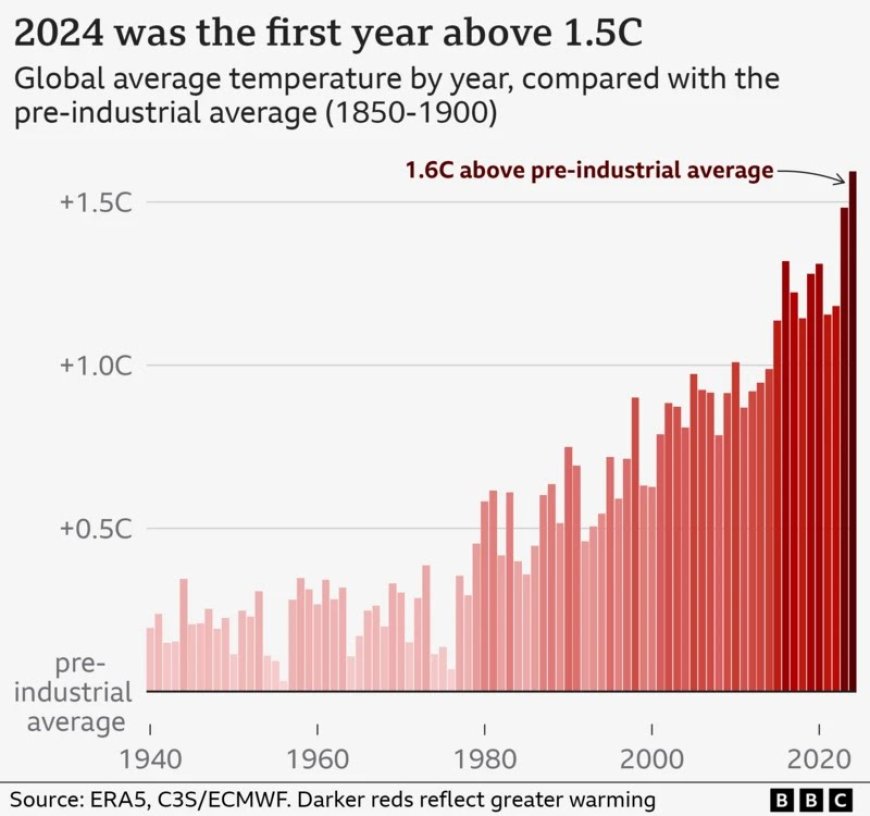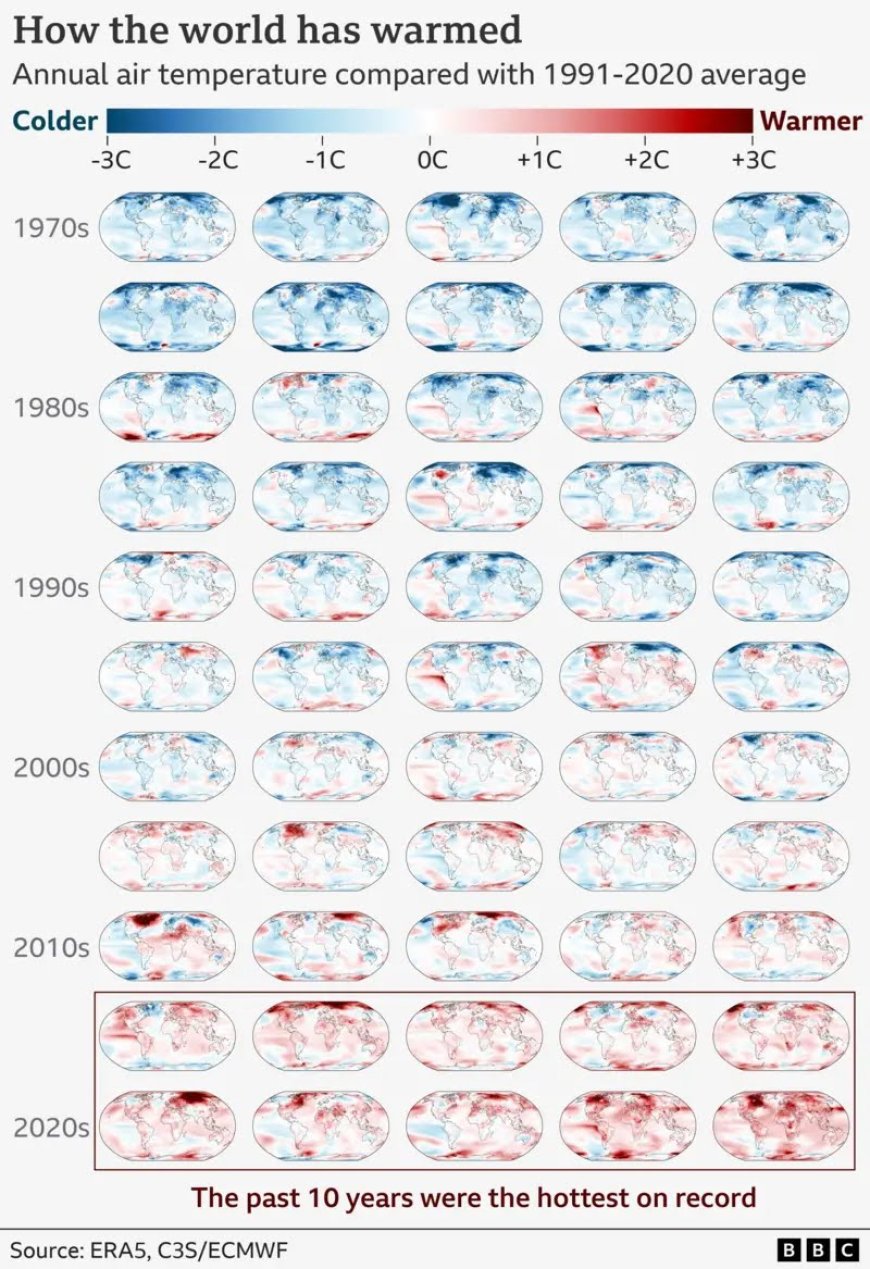2024 first year to pass 1.5C global warming limit
The planet has moved a major step closer to warming more than 1.5C, new data shows, despite world leaders vowing a decade ago they would try to avoid this

planet has moved a major step closer to warming more than 1.5C, new data shows, despite world leaders vowing a decade ago they would try to avoid this.
The European Copernicus climate service, one of the main global data providers, said on Friday that 2024 was the first calendar year to pass the symbolic threshold, as well as the world's hottest on record.
This does not mean the international 1.5C target has been broken, because that refers to a long-term average over decades, but does bring us nearer to doing so as fossil fuel emissions continue to heat the atmosphere.
Last week UN chief António Guterres described the recent run of temperature records as "climate breakdown"

Global average temperatures for 2024 were around 1.6C above those of the pre-industrial period - the time before humans started burning large amounts of fossil fuels - according to Copernicus data.
This breaks the record set in 2023 by just over 0.1C, and means the last 10 years are now the 10 warmest years on record.
The Met Office, Nasa and other climate groups are due to release their own data later on Friday. All are expected to agree that 2024 was the warmest on record, although precise figures vary slightly.
Last year's heat is predominantly due to humanity's emissions of planet-warming gases, such as carbon dioxide, which are still at record highs.
Natural weather patterns such as El Niño - where surface waters in the eastern tropical Pacific Ocean become unusually warm - played a smaller role.
"By far and away the largest contribution impacting our climate is greenhouse gas concentrations in the atmosphere," Samantha Burgess, deputy director of Copernicus, tells the BBC.
The 1.5C figure has become a powerful symbol in international climate negotiations ever since it was agreed in Paris in 2015, with many of the most vulnerable countries considering it a matter of survival.
The risks from climate change, such as intense heatwaves, rising sea-levels and loss of wildlife, would be much higher at 2C of warming than at 1.5C, according to a landmark UN report from 2018.
Yet the world has been moving closer and closer to breaching the 1.5C barrier.
"When exactly we will cross the long-term 1.5C threshold is hard to predict, but we're obviously very close now," says Myles Allen of the Department of Physics at the University of Oxford, and an author of the UN report.























































